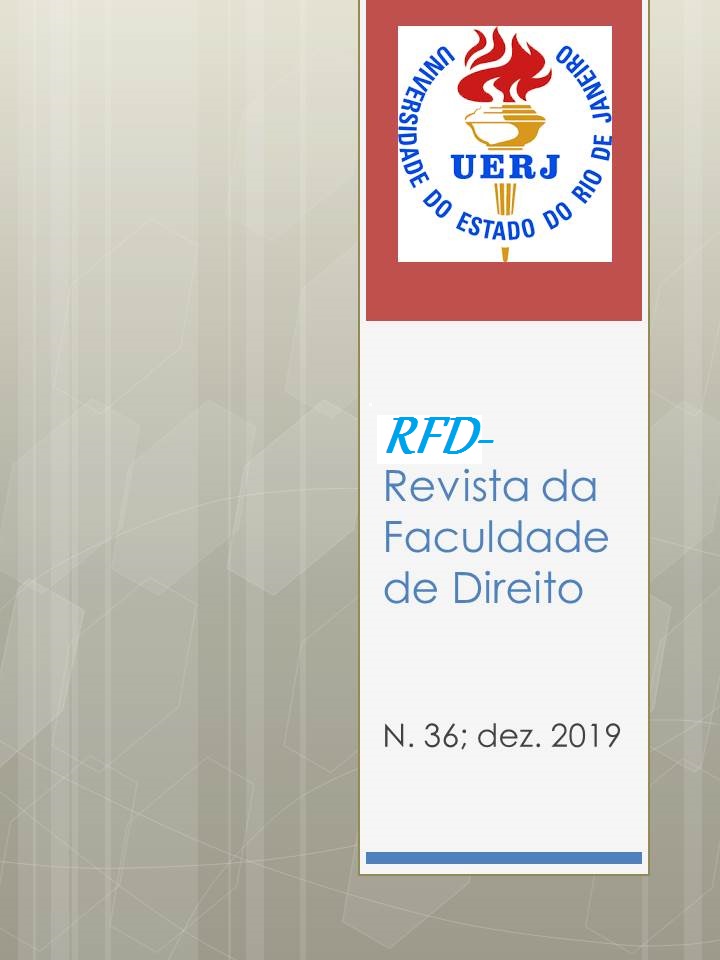Perspectivas teórcas e práticas da validade e eficácia dos acordos de convivência no sistema marcário
DOI:
https://doi.org/10.12957/rfd.2019.48338Abstract
Os acordos de coexistência de marcas são tipos de contratos comerciais que objetivam promover a convivência entre marcas “conflitantes” de concorrentes, não obstante a potencialidade de levarem consumidores a confusão e erro no processo de seleção e escolha de produtos e serviços. Mesmo sendo um instrumento jurídico eficaz para afastar conflitos entre concorrentes e explicitar que as marcas em contenda não levam confusões consumeristas, a sua eficácia não é reconhecida unanimemente pela doutrina. Ela sofre questionamentos também na Autarquia Federal investida dos poderes de exame e concessão de registro de marcas, qual seja o Instituto Nacional da Propriedade Industrial (INPI). O presente artigo objetiva explicitar os conceitos e características desse tipo contratual assim como apresentar as vantagens práticas em sua utilização e algumas controvérsias que impedem o reconhecimento pacífico no território brasileiro.
Downloads
Published
How to Cite
Issue
Section
License
Copyright
oArticles published in the Revista da Faculdade de Direito da UERJ (RFD/UERJ)
The copyrights of the published articles belong to the Revista da Faculdade de Direito da UERJ (RFD/UERJ). Total or partial reproduction of the articles is allowed as long as the source is cited.
oPartial reproduction from other publications
Submitted papers that contain parts of text extracted from other publications must obey the specified limits to ensure originality of the submitted work. Plagiarism in all its forms constitutes unethical behavior and is unacceptable.
It is recommended to avoid reproduction of tables and illustrations from other publications. The article that contains reproduction of one or more tables and/or illustrations from other publications will only be sent for analysis if it is accompanied by written permission from the copyright holder of the original work for the specified reproduction in the Revista da Faculdade de Direito da UERJ (RFD/UERJ). The permission must be addressed to the author of the submitted work. Under no circumstances will the Journal of the Law School of the State University of Rio de Janeiro (RFD/UERJ) and the authors of the papers published in this journal transfer the rights thus obtained.
•The refused studies will be returned to the authors, if asked.

The Revista da Faculdade de Direito is licensed under a Creative Commons Atribuição 4.0 Internacional License.
This work is licensed under a Creative Commons 4.0 Attribution-No Derivation License.
This license allows copying and redistribution of the material in any medium or format for any purpose, even commercial, provided that the original authorship is acknowledged.










